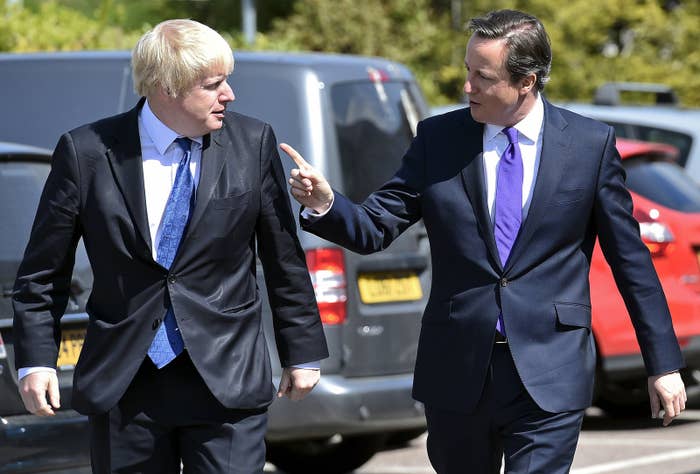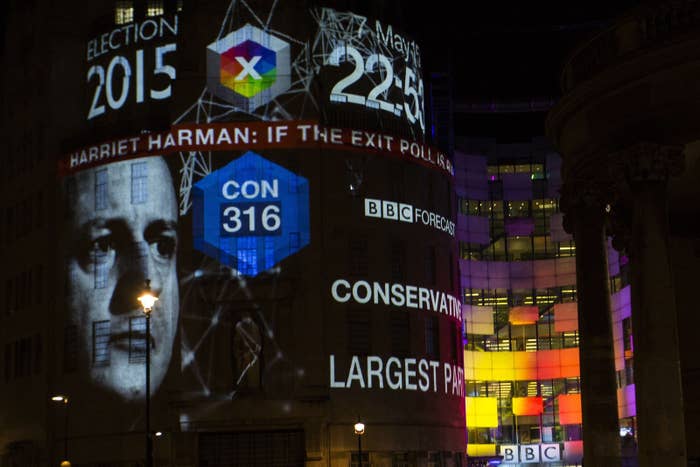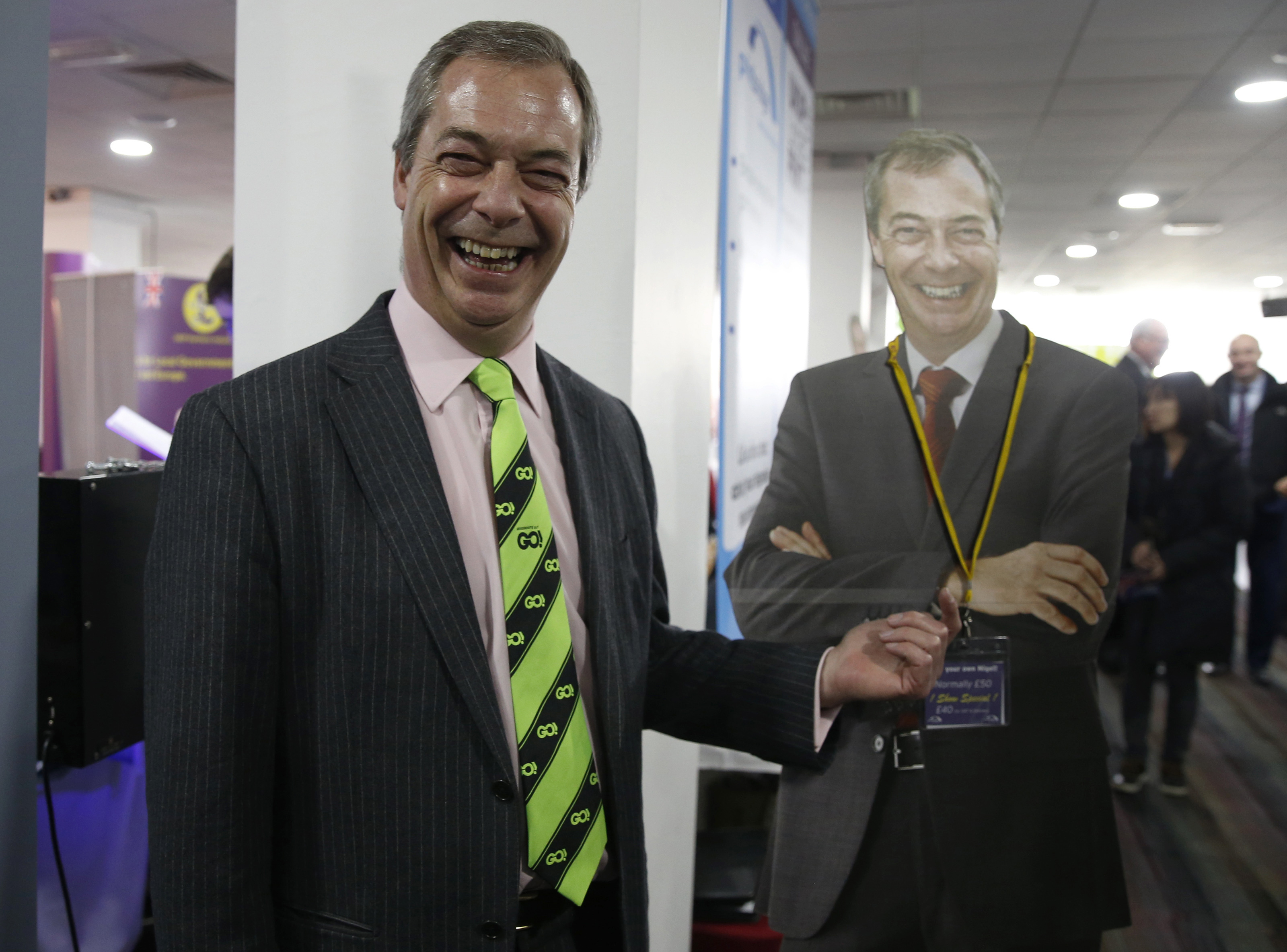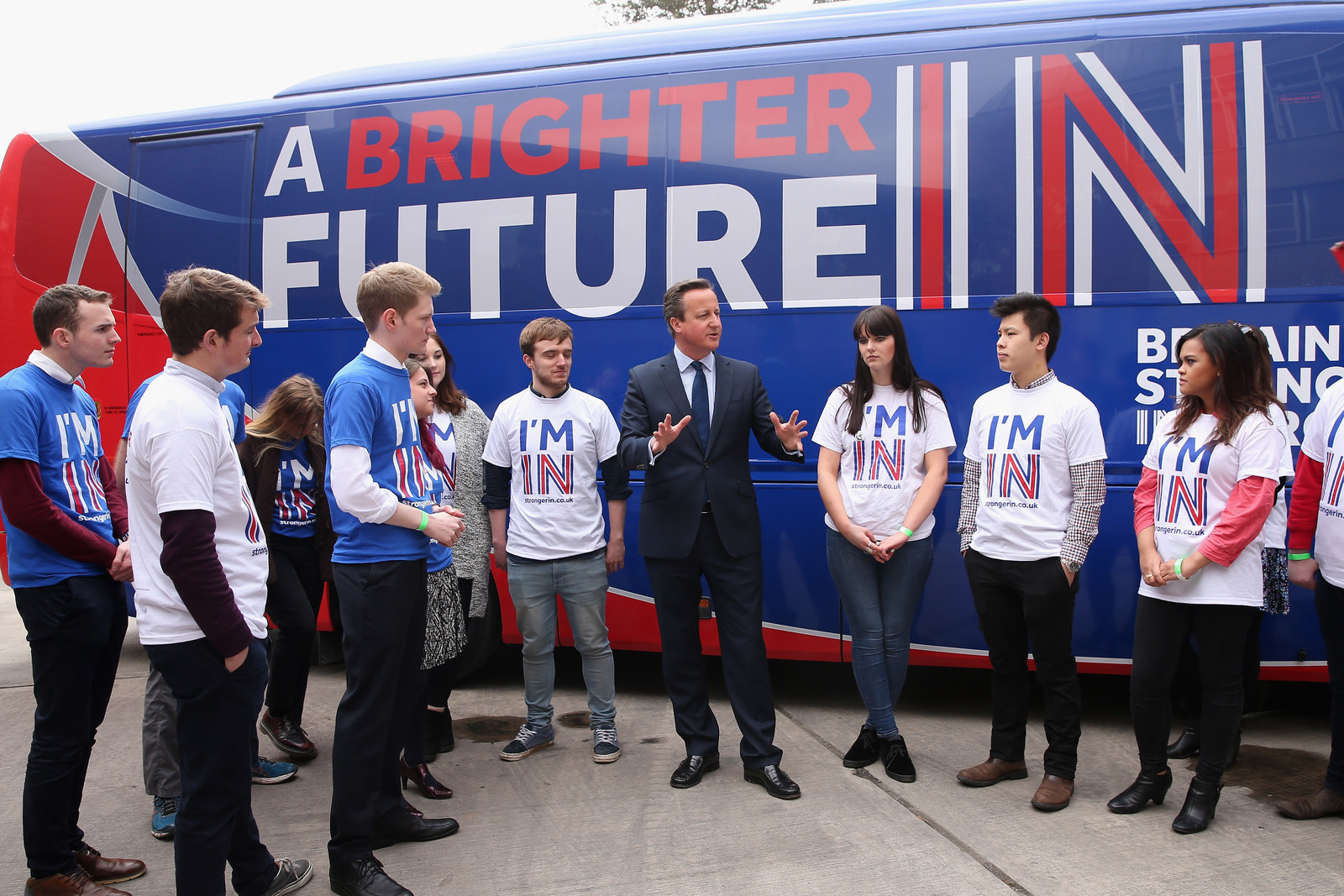
There are just over 70 days until the UK votes on whether to remain in or leave the European Union, and the polls are far from clear. Those carried out over the phone show a solid lead for Remain, while those taken online suggest a tighter contest, and several even give the Leave side a slight edge.
They can’t both be right. So, to help make sense of these contrasting numbers, BuzzFeed News asked Britain’s top pollsters what they think is going on.
Important caveat: All the pollsters pointed out that the data provides only a snapshot of current opinion, and a lot could still happen over the next two months. Following last May's failure across the board to anticipate a Conservative majority, everyone interpreting the data has become slightly more cautious with their predictions.
Joe Twyman of YouGov compared polling at this stage to predicting who will win the next European Championship: “You don’t know who will be in the squad, their specific strengths and weaknesses, you don’t know who will be managing things, and an awful lot of things can – and will – happen between now and then that have the potential to have a massive impact on the final outcome."
We asked each pollster who they think will win the vote, what the challenges are facing each campaign, and to predict the factor many anticipate will decide the 23 June referendum: voter turnout.
1. If the referendum were held tomorrow, who do you think would win?
Ben Page (Ipsos Mori), who said predicting the vote now is a mug’s game:
"Remain would win – because if the 'real' referendum was tomorrow it would have already caught far more public attention. If a snap referendum was held however, the polls suggest it would be a close-run thing, and Brexit might pull a surprise victory simply because its supporters are more likely to vote and the undecideds would not have been motivated to turn out."
Joe Twyman (YouGov):
"Question wording is important in my world and it has a big impact here. Therefore I am going to answer this question in two different ways. If tomorrow were the referendum day, in other words it was the end of June and the formal campaigns had finished, I think Britain would vote to stay in the EU.
However, this is based on the current polling and historical precedents and the situation could change significantly. Assuming things did not change I imagine the economic arguments, general uncertainty, and conservative (with a small c) preference for the status quo would triumph.
However, if the referendum were actually tomorrow, in other words 12 April, then I think we would probably vote to leave. That’s because the only people really interested and engaged at this early stage are more likely to want to leave than to stay. For example, nearly 4 million people voted UKIP at the last election. Most of them would walk across broken glass in bare feet to vote Leave in this referendum. The Stay campaign does not have an equivalent group of similar size."
Martin Boon (ICM):
"The only honest answer any pollster should provide is: I really don’t know. I would not trust anyone who says they do – polls still conflict and despite some best efforts there are important judgment calls being made by all of us in terms of what we think are the right tools to apply to our polls.
"So my response is based on gut instinct rather than polling objectivity – but if it really were tomorrow, I think Remain would win (but I’m not sure it actually will do on 23 June). The direction of travel seems to me to point the way of Leave, with Cameron’s Tories split, disaffection with the government helping Brexit by proxy, and a lower than anticipated turnout inevitably helping Leave."
Andrew Hawkins (ComRes):
"Remain, but support for staying in has been seeping away so that answer may change over the next two and half months."

Damian Lyons Lowe (Survation):
"If the referendum was tomorrow, the UK would vote to remain – the Leave campaign has work to do. Our mid-March telephone poll showed support for Leave up 2% compared with our February polling. However, Remain still stands 11 points clear on 46%, with Leave on 35% and 19% undecided.
"These figures are encouraging for Remain, and are in line with most other telephone polls published this year. Remain’s average lead so far in 2016 is some 13 points. Polls conducted online do show a different picture – nearly as many conducted in 2016 put the Leave campaign in the lead as Remain.
"While we and others look to get to the bottom of this difference, my instinct is to trust telephone polling as a mode. It has been the most accurate during the UK’s recent referendums – on the alternative vote and Scottish independence. But keep an eye out for movement in the coming months".
Adam Drummond (Opinium):
"If the referendum were held tomorrow, instinctively I feel like it would be an extremely narrow victory for Remain. Polls show the Remain camp either significantly ahead, narrowly behind, or in a dead heat, and there are some powerful status quo biases that kick in for referendums which would most likely offset the fact that the main proponents of a Remain vote are either mired in scandal, like Cameron and Osborne, or reluctant to actually say anything in support, like Corbyn."
Luke Taylor (TNS UK):
"Our polls currently show an incredibly tight race; however, we know from previous referendums held all around the world that there is often a late swing towards the status quo. As such, if the referendum were held tomorrow we think it is more likely than not that the public would vote to Remain."
2. What do you think turnout will be on 23 June?
Drummond (Opinium):
"This is the million dollar question that we won’t be able to satisfactorily answer until after it’s happened. Instinctively I’d expect turnout between 45% and 55%, with Remain’s chances of victory increasing in almost direct proportion. At risk of creating hostages to fortune I’m almost tempted to go with a rule of thumb that turnout below 50% means Brexit, and above 50% means we stay in."

Lyons Lowe (Survation):
"Estimating turnout is difficult as there has not been a comparable referendum for over half a century, when turnout was 65%. Put on the spot, those who tell Survation they are certain to turn out has been a reasonable proxy in the past to estimate turnout – 60% of voters are telling us they are certain to vote."
Taylor (TNS UK):
"Based on our recent polls and a new turnout model we developed using data from the 2015 general election we expect the turnout to be in the region of 65%."
Andrew Hawkins (ComRes):
"Somewhere north of 60% – I think it will be high."
Page (Ipsos Mori):
"In 1975, turnout was only 65%, well below normal election turnouts of the 1970s. At this stage I would expect turnout to be lower than in the last general election, which was 66% – so say 59%?”
Boon (ICM):
"The only thing that I’m absolutely certain of is that whatever the polls suggest turnout will be, actual turnout will be lower. If I were a betting man, which I’m not, I’d be throwing money at below 50%, maybe closer to 40%. I simply don’t believe any of this 60-75% narrative, but like I say, I’m not unused to being horribly wrong."
Twyman (YouGov):
"Turnout will be crucial, but it is really difficult to predict at this stage what it will be given the official campaigns have not even been designated. If it’s around a 30% turnout (like local elections) I think we will vote to leave, if it’s around a 60% turnout (like general elections) I think we will vote to stay. Where it falls on that spectrum will probably determine the result, and I imagine it will be much closer to 60 than 30 – but we shall see! An awful lot can still change in the weeks that remain."

3. In one or two sentences, what is the main challenge for each of the campaigns?
Boon (ICM):
"Leave clearly have to successfully counter Project Fear, something which is very tricky given that the present yields no evidence of the future. There’s no secret that success for Brexit is all about convincing those key voter groups who like the idea of Brexit but may not quite be able to take the leap of faith that prosperity outside the EU will not merely be a possibility, but a certainty.
"It may not be a perfect storm quite yet, but it looks to me like Remain In are rattled by strong headwinds. The central message is quite dull and defensive, negative perceptions that people have of the EU are ever present, and strong leadership from the prime minister appears unlikely when so many of his own colleagues campaign against him. Maybe the main challenge for Remain will be to simply hold its nerve, oh, and to get its vote out."
Lyons Lowe (Survation):
"For Remain, turnout is the main challenge. There's little love for the EU among the population as a whole and this extends to many who would vote to remain when asked. The Remain campaign should take polling leads with a pinch of salt and aim to give voters strong and personalised reasons to actually turn out and cast a vote on 23 June.
"For the Leave campaign, the battle against this status quo mindset is the key challenge. The "leaving is a leap in the dark not worth taking" message from Remain is strong and tricky to take on when many on the Leave side hold different views of Britain's future post an EU exit. Messengers on the Leave campaign need to be unified and promote a positive democratic future that Britain outside of the EU represents (for them) the status quo and that staying, not leaving, is the leap in the dark not worth taking."
Twyman (YouGov):
"The Stay camp has to engage with young people and get them interested, or at least engaged enough to turn out to vote, while at the same time emphasising the economic uncertainties associated with leaving to everyone. That means both a positive message and Project Fear, but working in ways that younger voters can relate to, beyond the usual party politics. The Leave camp should aim to muddy the waters around the economic argument so nobody is actually in the least bit clear about whether we would be better or worse off, regardless of what happens. Then they need to, among other things, paint a broad, positive, easily understood picture about where Britain’s future lies and what it would look like outside the EU. Both sides should rely on grand themes/narratives – ‘Britain is better off economically in/out of Europe’ – rather than complicated technical arguments focusing on the intricacies of policy."
Taylor (TNS UK):
"The major challenge for the Remain campaign is their strong support among younger people; they [young people] are traditionally less likely to turn out in elections and so it will be critical for them to encourage a high turnout among this group. For the Leave campaign the major issue is the uncertainty of what Brexit would mean and convincing the public that the risks are minimal and outweighed by the benefits. Furthermore, with a third of the public yet to make up their mind, a major challenge for both campaigns is in clearly and persuasively articulating their case to these undecided voters."
Hawkins (ComRes):
"For Remain the challenge is to keep people sufficiently motivated to support a problem-riddled set of institutions, when the campaign so far has relied too much on fear of the alternative. For Leave, the challenge is to present a plausible, credible alternative to the status quo which is not excessively risky. For both campaigns there are too many egos vying for control, which helps explain the execrable quality of debate thus far".
Page (Ipsos Mori):
"Brexit has to address the main point being made by the authority figures in the UK (PM, governor of the Bank of England, chancellor of the exchequer, CBI etc) that the economy and jobs will suffer adverse effects, and that our security and stature as a nation will not be diminished.
"Remain have to show how the EU will be reformed to protect our interests and how immigration will be controlled – and its key challenge is getting those who are not engaged (only 23% of people say the EU is the key problem facing Britain) but who will tend to choose the 'safe option' to actually turn out and vote, as David Cameron has identified."
Drummond (Opinium):
"For Remain it’s all about turnout. It’s a referendum held on a day when no other voting is taking place, at the start of summer when people are preparing to go on their holidays, and all the data is telling us that the most committed voters are the ones in groups that disproportionately favour Leave, namely older people (55+ and 65+) and those for whom Europe is one of their top three issues.
"Young people are a notoriously low-turnout group and the same generational differences that so benefited David Cameron last May could come back and hurt him this June.
"For Leave, it’s the natural inbuilt bias against the 'change' side in any referendum campaign. The UK has only had two nationwide referendums and both resulted in a 2-1 victory for the status quo. This time I expect the result to be much closer to that but the risk of change is most definitely the strongest card the Remain camp has. This is why we’ve seen Vote Leave spend so much time focusing on painting their side as 'the safer choice', to attempt to neutralise this.
"The other challenge for Leave is possibly personnel. While Boris Johnson and Michael Gove provided some more heavyweight support, the other figures most strongly associated with Leave are Nigel Farage, Chris Grayling, Iain Duncan Smith, and George Galloway. In contrast, the more 'sensible'-seeming major politicians tend to be on the Remain side.
"Also, while I don’t expect the views of foreign leaders to have much of an impact, it’s interesting that Remain have Barack Obama, Bill Clinton and Angela Merkel while Leave have Donald Trump, Ted Cruz, and Vladimir Putin."
Polling firm Populus was also invited to answer the three questions. They declined because they are working with one of the campaign groups.
